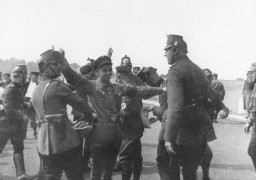
Article
Browse an alphabetical list of articles about the Holocaust and World War II. Learn more about topics such as the Nazi rise to power, how and why the Holocaust happened, life in Nazi camps and ghettos, and the postwar trials.
<< Previous | Displaying results 11-19 of 36 for "Article" | Next >>
-
Persecution of Roma (Gypsies) in Prewar Germany, 1933–1939
ArticleBeginning in 1933, the Nazis persecuted Roma (often pejoratively called “Gypsies”) based on underlying prejudices and racism. Learn how this harassment escalated to genocide.
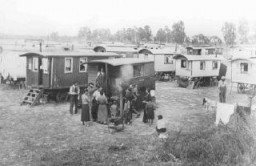
-
Personal Stories: Jewish Partisans
ArticleBrowse a series of short biographies from the Jewish Partisan Educational Foundation.
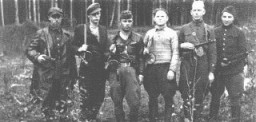
-
Peter Bergson
ArticleLearn more about American Zionist and activist Peter H. Bergson (born Hillel Kook).
-
Plaszow
ArticleThe Płaszów camp was established in Krakow, Poland, in 1942. Learn more about the camp during the war, including Oskar Schindler’s involvement.
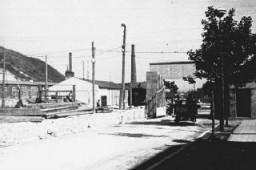
-
Plight of Jewish Children
ArticleDuring the Holocaust, some children went into hiding to escape Nazi persecution. They faced constant fear, dilemmas, and danger.
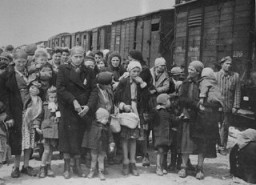
-
Pogroms
ArticleThe term “pogrom” historically refers to violent attacks on Jews by local non-Jewish populations. Learn about pogroms before, during, and after the Holocaust.
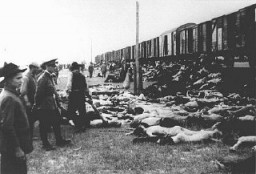
-
Poking Pine City Displaced Persons Camp
ArticleAfter WWII, many Holocaust survivors, unable to return to their homes, lived in displaced persons camps in Germany, Austria, and Italy. Read about Poking Pine City DP camp.
-
Poland in 1945
ArticleAt the Yalta and Potsdam conferences, Allied leaders negotiated terms for the end of WWII in Europe. This included establishing Poland’s new postwar borders. Learn more.
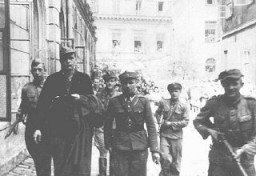
-
The Police in the Weimar Republic
ArticleThe Weimar Republic existed in Germany from 1918-1933. Learn more about German police during that time.
